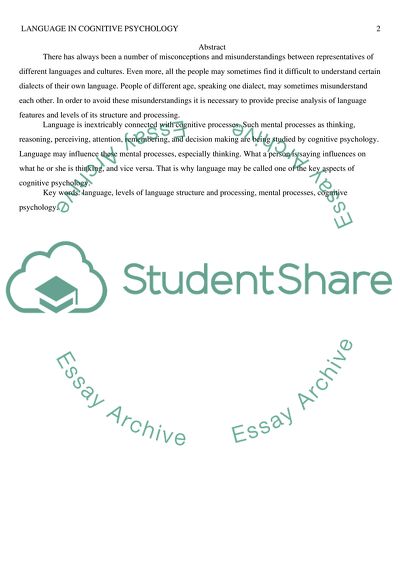Cite this document
(“Language Paper Research Example | Topics and Well Written Essays - 1250 words”, n.d.)
Retrieved from https://studentshare.org/psychology/1674712-language-paper
Retrieved from https://studentshare.org/psychology/1674712-language-paper
(Language Paper Research Example | Topics and Well Written Essays - 1250 Words)
https://studentshare.org/psychology/1674712-language-paper.
https://studentshare.org/psychology/1674712-language-paper.
“Language Paper Research Example | Topics and Well Written Essays - 1250 Words”, n.d. https://studentshare.org/psychology/1674712-language-paper.


